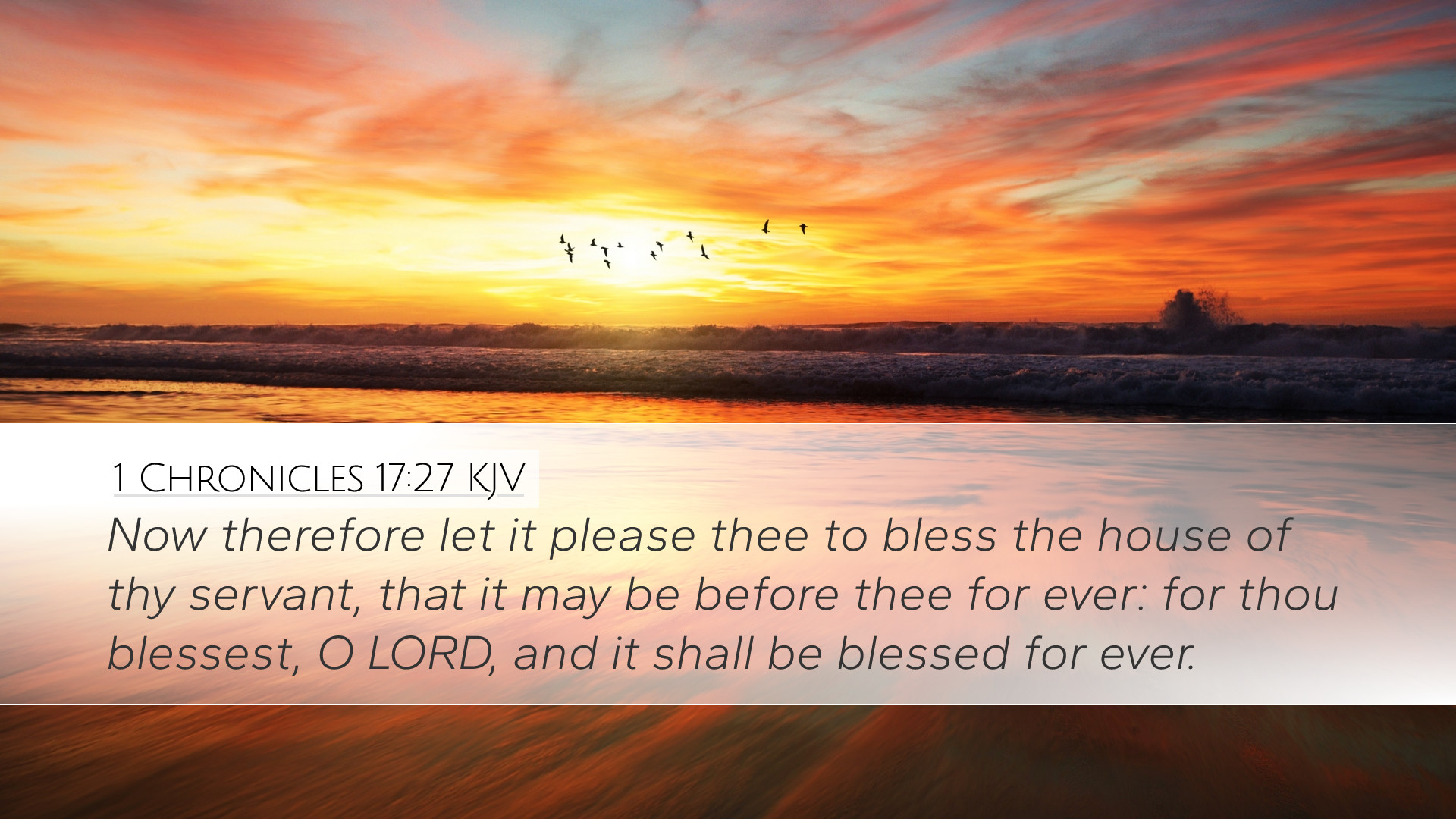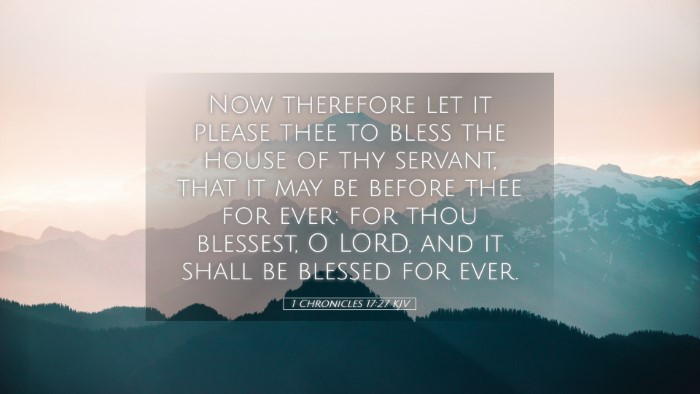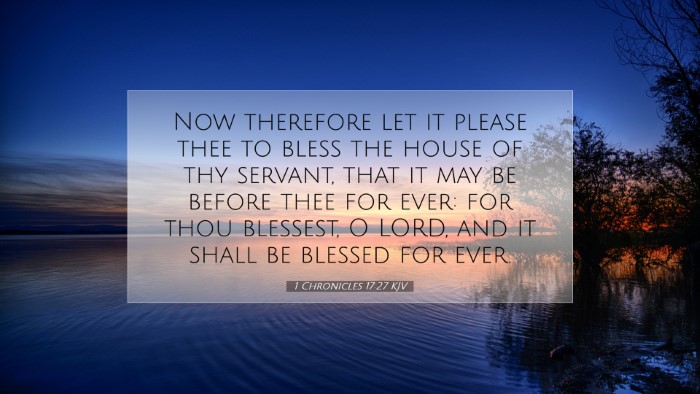Commentary on 1 Chronicles 17:27
Verse: 1 Chronicles 17:27 - "Now therefore, let it please thee to bless the house of thy servant, that it may be before thee for ever: for thou blessest, O Lord, and it shall be blessed for ever."
Introduction
This verse occurs in the context of God's covenant with David, where God promises that David’s lineage will be established forever. In this passage, David is seen praying for God's blessing on his house, acknowledging that it is God alone who bestows blessings. This commentary seeks to draw insights from several notable public domain commentators, weaving their thoughts into a cohesive understanding of this significant verse.
Understanding David's Prayer
Matthew Henry emphasizes the personal nature of David's plea. He points out that David recognizes his humble position as a servant, which reflects a deep understanding of his dependence on God's grace. Henry notes that this acknowledgment is essential for anyone approaching God in prayer, serving as a reminder that our status before God is one of servitude, not entitlement.
Albert Barnes builds on this idea by highlighting the profound significance of God's blessings. He states that blessings from God carry an eternal weight, underscoring that when God blesses, the blessing is irrevocable. Barnes suggests that David's request for blessings not only pertains to wealth or prosperity but embraces spiritual health and divine favor that sustains throughout generations.
Adam Clarke reiterates this theme, noting the importance of legacy in David’s prayer. Clarke posits that David seeks to ensure God's continued presence in his lineage, understanding that the presence of God is paramount for the success and righteousness of his descendants. Clarke suggests that David’s prayer serves as a model for spiritual leaders today, encouraging them to seek divine endorsement for their families and ministries.
The Nature of God's Blessings
This verse reflects a profound theology of blessings. David acknowledges that it is God who blesses, and this blessing is meant to endure forever. Each commentator offers their insights regarding the nature of these blessings:
- Matthew Henry: Highlights that God's blessings are not merely material; they encompass spiritual, emotional, and social dimensions that enrich one's life.
- Albert Barnes: Points out that the blessings encapsulate God's favor, protection, and guidance, assuring that these divine gifts are foundational for a thriving community.
- Adam Clarke: Emphasizes the generational aspect of blessings, indicating that the effects of divine blessings can permeate through history, affecting not just individuals but entire families and nations.
The Covenant Context
This prayer by David must be understood in light of the covenant God made with him. The covenant promised not only a physical kingdom but also a spiritual lineage. Henry notes that David’s request for blessings upon his house ultimately points to a deeper theological truth about God’s eternal promises.
Barnes elaborates that this request is a response to the covenantal assurance that God provided. By asking God to bless his house, David is claiming the promises of God and reinforcing the connection between divine promise and human response. Clarke emphasizes that our petitions, like David’s, should acknowledge God’s covenantal faithfulness, reminding believers that God responds to faith-filled prayers.
Lessons for Today
This verse serves as a timeless reminder of several essential truths applicable to modern believers:
- The Role of Prayer: Just as David sought blessing through prayer, believers today are encouraged to persistently ask for God’s favor in their lives and the lives of their families.
- Understanding Our Position: Acknowledging ourselves as servants of God fosters humility and is essential for effective prayer.
- The Importance of Legacy: David's concern for his house illustrates the need for ongoing faithfulness across generations, prompting believers to be intentional about their spiritual inheritance.
- The Nature of God’s Blessing: Understanding that true blessings come from God emphasizes the need for a deep, personal relationship with Him, whereby His favors manifest in both tangible and intangible ways.
Conclusion
1 Chronicles 17:27 encapsulates a prayer that interweaves themes of humility, legacy, and divine favor. Insights from Matthew Henry, Albert Barnes, and Adam Clarke enhance our understanding of this significant verse, drawing attention to the necessity of seeking God's blessings in our lives. As modern-day believers, reflecting on David's example encourages us to pray for the divine endorsement of our homes and ministries, fully trusting in the God who blesses eternally.


